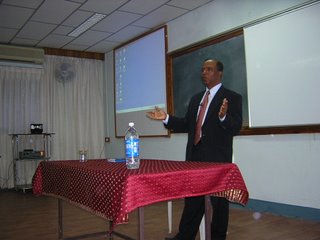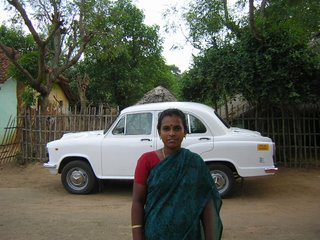
The topic was " Indian business going global". Audience 120 first year MBA students of the Bharatidasan Inst of Management at Trichy. Dr Sankaran, the Director was present. The event was held thanx to the initiative of Friend Ravichandran of Chennai.
The Institute has a niche in the B-school circles. All of its students get placement thru campus recruitment. During interaction I found the students as bright, knowledgeable and mature. 90 percent have engineering degrees and fity percent have work experience.
I elaborated the following points:
-This year outward FDI is more than inward FDI.
-India is a capital deficit country. Interest rates in India higher than international rates.
- Essar investment in Trinidad is an interesting example. Basic logic for investment in Tinidad is availability of abundant and inexpensive gas. iron ore will come from some other country in the region. market principally USA. capital will be from international banks. technology might be foreign. So what goes from India?
-Indian bz going global is not just a matter of market or money. It is fundamentally a new mindset.
-After having been conquered, colonised and ruled by foreigners in the last seven hundred years Indians have now got the confidence to conquer the world. Mittal being the richest in UK is the sweet revenge for East India company .
-It is the IT cos which started the new phenomenon of going global, establishing a new paradigm and benchmark.
-Thanx to IT Indian is being recognised and respected in the world
-IT opened the doors to others such as pharma, manufacturing and mining . There is need for Indian cos to acquire foreign assets in energy, agribz and forestry.
-prospects for the Indianisation of global bz good based on two fundamentals: The large and growingIndian economy and market give a walmart advantage to Indian cos. The abundant young and skilled Indian human resources will be an advantage vis-a-vis the ageing developed societies facing skill shortages.
-Economic Diplomacy will bring value addition to the Indian bz going global through facilitation and promotion.



